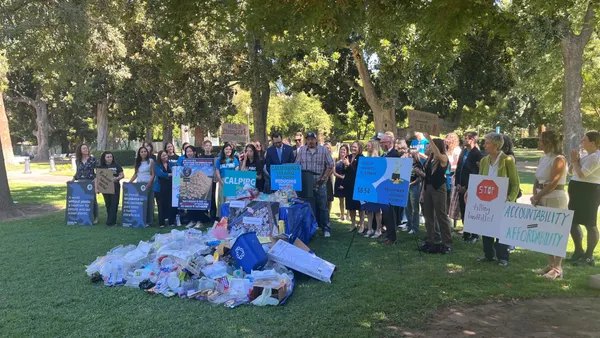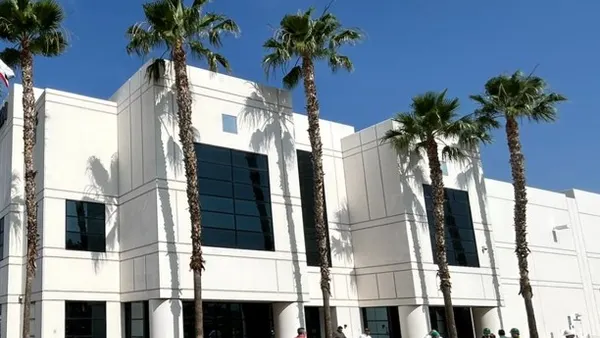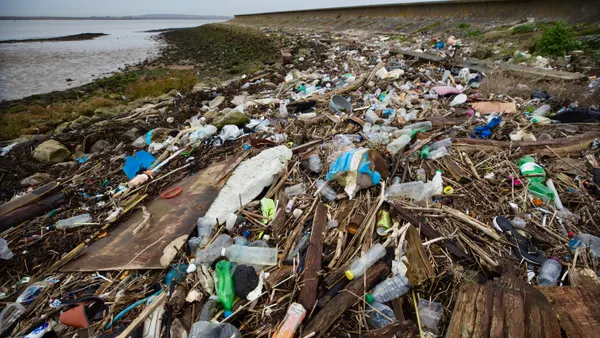Dive Brief:
- The Plastics Industry Association's latest Market Watch report focuses on the growing role of PET bottles in the waste stream. The plastic container market is projected to grow 6% by 2020, driven largely by beverage sales, as reported by Recycling Today.
- As bottled water sales begin to overtake carbonated soft drinks, the report shows the recycling rate for these single-serve water bottles has doubled to 37%. Between 2000 and 2014, the average weight of these bottles decreased by 51%.
- The use of recycled PET in these water bottles also increased from 17.5% in 2008 to 21% in 2014.
Dive Insight:
According to this report, bottles and jars now account for about 75% of all plastic containers. A study released by the Sustainable Packaging Coalition last year found that 92% of U.S. residents now have access to some form of recycling option for these bottles and even with a trend toward lighter weights the diversion rates for PET bottles have remained steady.
While commodity prices have seen some improvement, low oil prices can make virgin plastic a more appealing option than recycled PET in many cases and the climate is still tough. The report recognizes that these economic factors "cannot be ignored by brand owners," but still encourages recycling. "...All participants in the plastics value chain — including recycling players and all levels of government — need to continue supporting recycling capabilities, facilities and technologies. The examples of European nations in reducing landfilling should be seen as a laboratory for the U.S. recycling system," reads the report.
The example of Europe's landfills is an interesting one as taxes and other factors are at play. A recent study found that Germany, the world's top recycler, has a 93.5% diversion rate for its PET bottles due in large part to a bottle deposit system. The appetite for passing new bottle bills, or continuing existing ones, has been weaker in the U.S. lately. Some environmental advocates have also questioned whether the growth in bottled water sales is a good thing, even attempting to ban the product in some municipalities.










